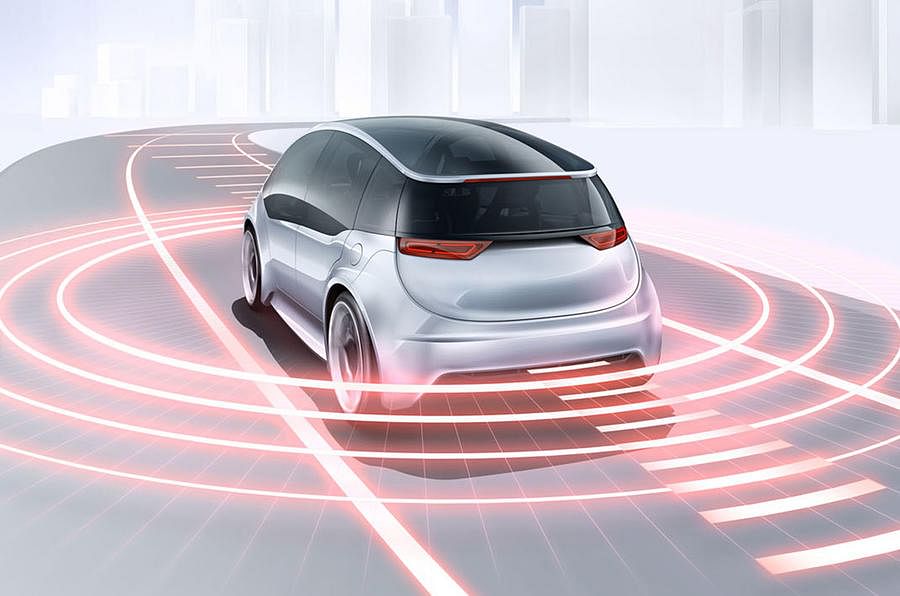Bosch unveils long-range LiDAR sensor for autonomous cars
System uses light sensors to detect obstacles and could be critical for self-driving cars
Bosch has become the first company to create a production-ready long-range lidar system, a development that has the potential to speed up the arrival of autonomous driving.
Set to be demonstrated at next week’s Consumer Electronics Show in Las Vegas, the lidar covers both short and long ranges and is intended to be combined with existing radar and camera technology, “complementing each other perfectly and delivering reliable information in every driving situation”.
Lidar stands for ‘light detection and ranging’. Such systems use light sensors to generate a three-dimensional view of the road, improving the ability of autonomous cars to perceive traffic and other obstacles.
 Lidar works by emitting laser pulses and then analysing the light as it's scattered back
Lidar works by emitting laser pulses and then analysing the light as it's scattered back
By emitting laser pulses and then capturing and analysing the light that is scattered back, the sensors calculate the distance between themselves and other objects, including not only other vehicles but also smaller obstructions such as rocks on the road.
A big advantage of lidar is that it can detect narrow objects such as bikes, which radar can miss, and isn’t susceptible to strong light as cameras are. This, claims Bosch, makes it the ideal accompaniment to the other systems.
Bosch board member Harald Kroger said: “By filling the sensor gap, Bosch is making automated driving a viable possibility in the first place. We want to make automated driving safe, convenient and fascinating. In this way, we will be making a decisive contribution to the mobility of the future.”
RELATED ARTICLES
Sept 2024 From R&D incentives to EV infrastructure: What auto components industry expects from Budget 2024
Sept 2024 From R&D incentives to EV infrastructure: What auto components industry expects from Budget 2024
US car majors hit the brakes on driverless cars
Ford Motor and Volkswagen to close self-driving startup Argo AI, due to lack of technology and clear regulations.
Autoliv and Geely to develop advanced safety tech for future vehicles
Scope of cooperation includes safety for high-level autonomous driving, intelligent steering wheel technology, a 360deg ...






 03 Jan 2020
03 Jan 2020
 7158 Views
7158 Views





 Autocar Pro News Desk
Autocar Pro News Desk




